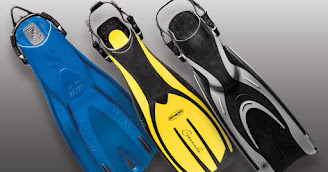London is layered with history, where medieval and Victorian supplement a rich and lively present day world. The Tower of London and Westminster neighbor nearby bars and markets, and old ceremonies like the changing of the gatekeepers happen as suburbanites hurry to get the Tube. It's where explorers can time-jump through the city, and when they're fatigued, do as Londoners do and get a "cuppa" tea.
Travel Notice:
There are some Travel restrictions on this destination due to COVID-19 as of now. Look at the information for local and voyagers by clicking this link: Coronavirus COVID-19
***********************************************************************************
What is the most ideal approach to arrive?
By Flights:
Travel Notice:
There are some Travel restrictions on this destination due to COVID-19 as of now. Look at the information for local and voyagers by clicking this link: Coronavirus COVID-19
***********************************************************************************
What is the most ideal approach to arrive?
By Flights:
 |
| London Heathrow Airport |
London is served by six worldwide air terminals: Heathrow Airport, Gatwick Airport, London City Airport, Luton Airport, Stansted Airport and Southend Airport. Together, they make up the busiest airspace on the planet by traveler numbers.
Look at this link for Departure/Arrival information at London Airports.
By Train:
St Pancras railroad station is the primary terminal for fast Eurostar and High Speed 1 administrations connecting London with Europe.
Do I need a visa?
In case you're visiting London from abroad, utilize the administration's visa study to check whether you need a visa. Please Click Visa HQ for more details.
When is the best an ideal opportunity to visit?
Summer (June to August): With normal temps around 70°F (21°C) there's no deficiency of amusement in London over the late spring months, when Trooping the Color, London Pride, Notting Hill Carnival, and Wimbledon Tennis Championships attract enormous groups to the capital.
Get around
Bike
Santander Cycles is a bicycle share framework with many bike docking stations situated across London.
Guests can recruit a bicycle utilizing a bank card at the docking station or downloading the application.
For more data about the system and charges, see here.
In case you're visiting London from abroad, utilize the administration's visa study to check whether you need a visa. Please Click Visa HQ for more details.
When is the best an ideal opportunity to visit?
Summer (June to August): With normal temps around 70°F (21°C) there's no deficiency of amusement in London over the late spring months, when Trooping the Color, London Pride, Notting Hill Carnival, and Wimbledon Tennis Championships attract enormous groups to the capital.
Get around
Bike
Santander Cycles is a bicycle share framework with many bike docking stations situated across London.
Guests can recruit a bicycle utilizing a bank card at the docking station or downloading the application.
For more data about the system and charges, see here.
Train
London's Underground rail arrange, or "the Tube," administrations Greater London between 5a.m. what's more, 12 PM Monday to Saturday, with diminished working hours on Sunday.
Five Tube lines run a 24-hour administration on Fridays and Saturdays: Victoria, Central, Jubilee, Northern and Piccadilly lines.
For more data about the system and charges, see here.
Transport
London's transport course arrange administrations the city on a 24-hour administration.
For more data about the system and charges, see here.
Taxicabs
Flagging down a taxi in the city in London can be troublesome so it is ideal to locate an official taxi stand. You can likewise book a taxi on the web or on your cell phone here.
For more data about the system and charges, see here.
Ridesharing
Uber, Bolt, and Kapten are promptly accessible in London on your cell phone applications.
Cable cars
South London works a little cable car organize, Tramlink, with cable cars running roughly like clockwork in the daytime on Mondays to Saturdays.
For more data about the system and charges, see here.
What is the timezone?
Ans. Greenwich Mean Time
What are the voltage/plug types?
Ans. The standard voltage in the UK is 230V and the standard recurrence is 50Hz. The fitting has three rectangular pins.
Cash Curruncy?
Ans. The Pound Sterling
Are ATMs promptly open?
Ans. Indeed
Are charge cards generally acknowledged?
Ans. Indeed
Is it simple to discover a bank?
Ans. Yes, Indeed
Are there neighborhood customs I should know?
*****************************************
Drinking
The government legitimate age for purchasing and drinking liquor is 18 years of age.
Strolling
Stroll to one side of the walkway and venture out of the way of the walkway in the event that you need to stop to check your telephone, look into headings, or need to take in a view.
Open vehicle
Permit others to land before boarding, don't take up more than one seat, and remain to offer seating to pregnant ladies or somebody with a handicap.
Individuals will say "sorry" a ton — and you ought to as well
English individuals are well known for saying "sorry" regularly — regardless of whether they are not to blame, (for example, saying 'sorry' for the climate or hindering someone). It is viewed as amenable.
Are there neighborhood customs I should know?
*****************************************
Drinking
The government legitimate age for purchasing and drinking liquor is 18 years of age.
Strolling
Stroll to one side of the walkway and venture out of the way of the walkway in the event that you need to stop to check your telephone, look into headings, or need to take in a view.
Open vehicle
Permit others to land before boarding, don't take up more than one seat, and remain to offer seating to pregnant ladies or somebody with a handicap.
Individuals will say "sorry" a ton — and you ought to as well
English individuals are well known for saying "sorry" regularly — regardless of whether they are not to blame, (for example, saying 'sorry' for the climate or hindering someone). It is viewed as amenable.







